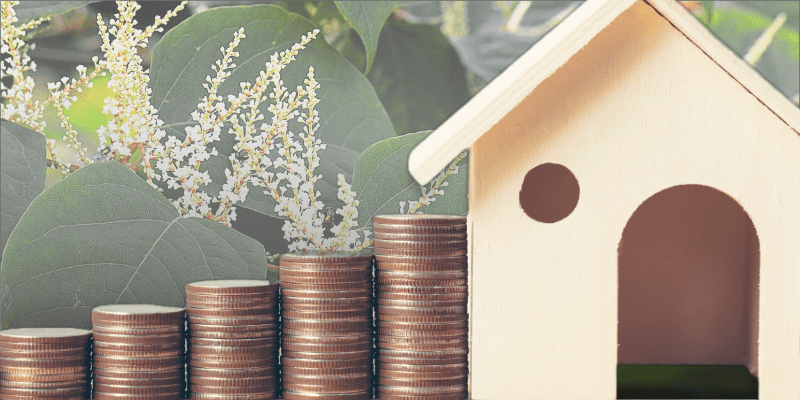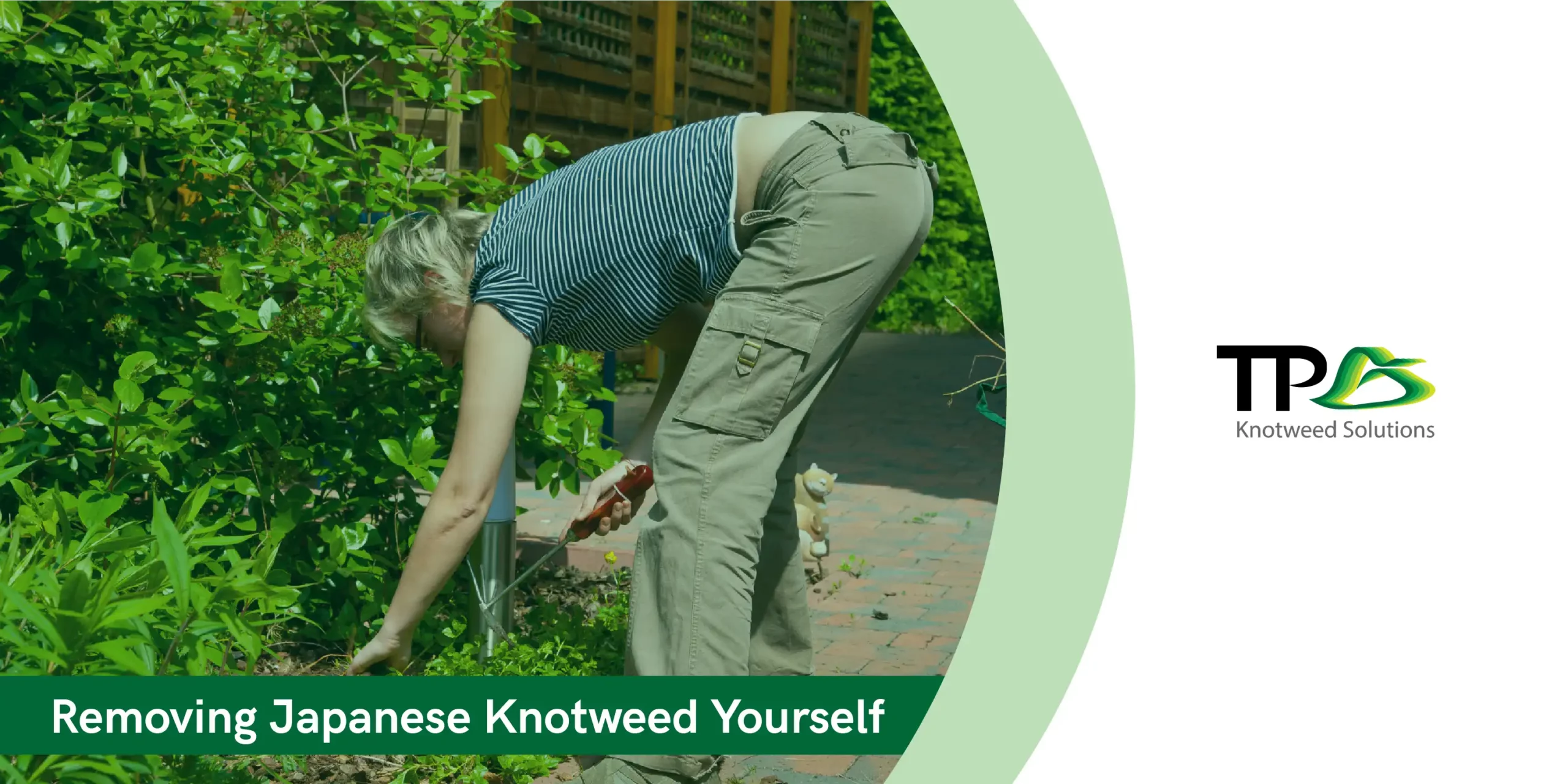There is a reason the words “Japanese knotweed” often strike fear into the minds of property owners and potential buyers across the country. Japanese knotweed can have a significant impact on home values and put your home’s selling price potential on a decline.
Between the whirlwind of dealing with appointments and paperwork when looking to sell a home, invasive plants may be the last thing on your mind. However, we urge you to consider them, as if the slightest trace of Japanese knotweed is found on your property, it can quickly put a dampener on your plans.
At its extreme, this invasive plant growth can halve the price of a property, with a depreciation of tens of thousands far from unusual when it comes to the value of a property which has Japanese knotweed present. And, if you don’t have Japanese knotweed home insurance, late discovery can result in even more expenses presenting themselves.
Simply put, Japanese knotweed’s negative role in home value makes it a monumental pain in the neck, putting both your home and your finances in a risky position. If you’re in the housing market, read on to learn more about the potential impact of Japanese knotweed on the value of properties.
How does Japanese knotweed damage buildings?
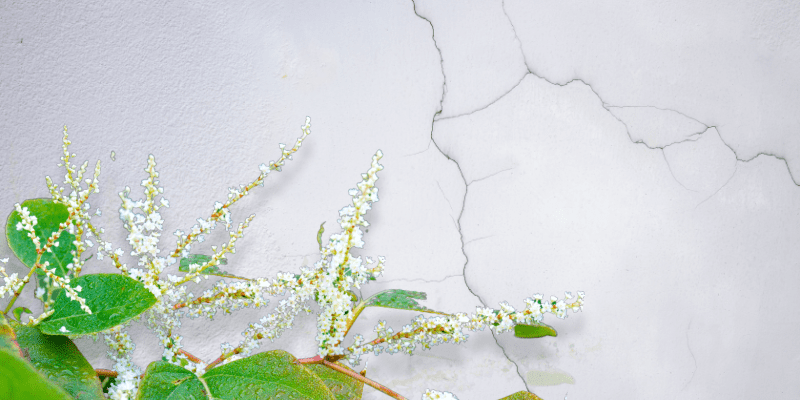
knotweed can cause serious damage to the integrity of buildings and infrastructure. Fast-growing shoots will benefit from wear, cracks and other gaps in materials, from concrete to brick, by growing inside them and pushing them apart. A large root system can do the same with pipes and plumbing.
If left untreated, the roots can grow up to 7 metres wide, which means the problem is best addressed as soon as possible. The damage to buildings present on land impacted by Japanese knotweed has costly consequences for a property and has a direct negative impact on its market value.
These invasive plants can find imperfections in concrete and asphalt, with stems pushing through any openings, widening cracks, or even breaking up and penetrating through pavements or driveways. They can do the same with stone or brick retaining walls, by finding the smallest of openings, pushing through, and causing significant damage as they grow.
Can Japanese knotweed damage foundations?
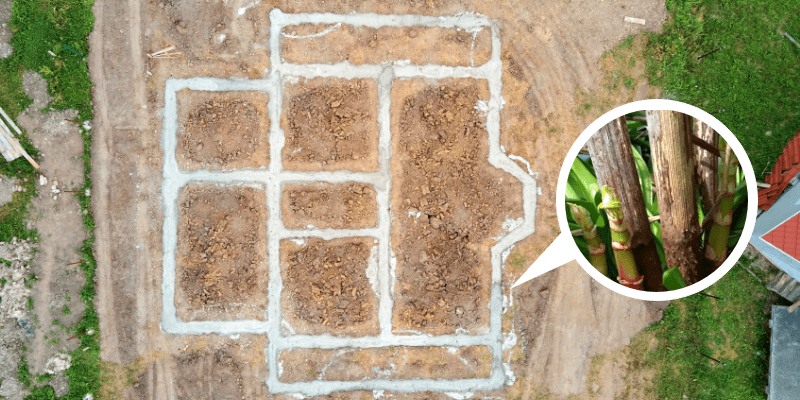
Japanese knotweed can certainly cause significant damage to the foundations of houses. Any growth of Japanese knotweed alongside the walls of a building’s foundations can create stresses and cause cracks.
Japanese knotweed stems and roots can also find and penetrate through existing cracks in foundations, resulting in further damage. To date, the scale of these damages has proven to have had a sizeable impact on the British economy.
Will Japanese knotweed devalue my house?

Research covering the UK housing market has found that Japanese knotweed tends to knock a minimum of 10% or £23,530 off of the average UK property’s value. Approximately 5% of UK households are affected by Japanese knotweed, with the study estimating 5% of UK homes to equate to 1,450,000 properties, which would be reduced in value by a total of £34.12 billion.
If a property is found to have a Japanese knotweed infestation, mortgage lenders will often require proof of a professional treatment plan. Sellers of a property that currently has Japanese knotweed present and will be listed on the market, or if Japanese knotweed has ever been present at the address, will be required to notify buyers of their knowledge of the infestation by indicating this information on the TA6 transfer form.
How long do you have to declare Japanese knotweed when selling a house?
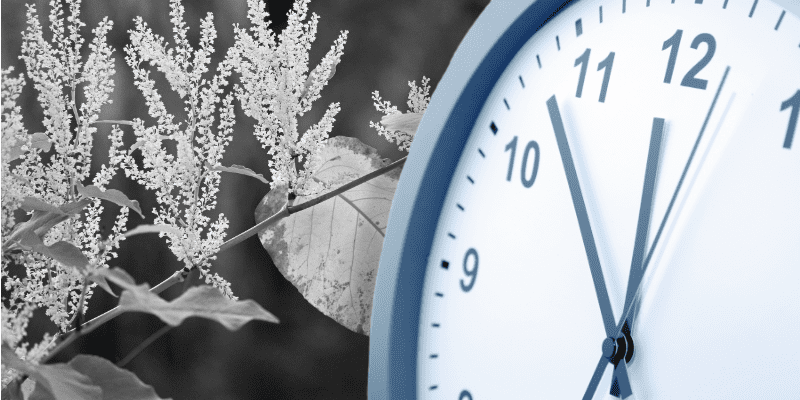
It is mandatory to legally declare if your property is affected by Japanese knotweed. While you are required to disclose this information to buyers once you’ve agreed to sell, it is always recommended to disclose it to your estate agent at the earliest opportunity.
The Law Society TA6 Property Information Form was updated in February 2020, placing further pressure on sellers to declare whether or not their property is suffering from Japanese knotweed. If the presence or absence of Japanese knotweed is not known, sellers should take necessary steps to seek a definitive answer, such as requesting a specialist company to conduct a survey on the property.
Find peace of mind with a professional site survey
Not only can Japanese knotweed devalue a property, but if it spreads to neighbouring properties, owners are faced with the risk of being subject to legal action. Owners can be held liable even if the infestation was present on their land before they bought it, so it is important to seek advice from a professional as soon as you suspect the presence of Japanese knotweed on your land.
Obtaining a Japanese knotweed survey from specialists can mean the difference between a successful sale or a significant loss in home value, as well as potential legal risks if spreading to neighbouring property occurs.
Beat the risks by contacting one of our experienced surveyors to find a definite answer on the presence or absence of Japanese knotweed on your property, before it’s’ too late.
